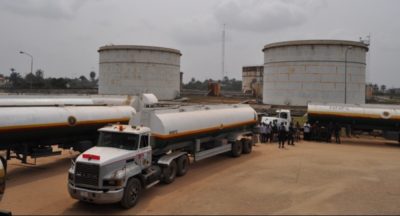
•It is in the interest of both to work together
Like many public establishments, the Nigerian Railway Corporation (NRC) that used to be a place of pride to work a few decades ago went comatose due to neglect by the Federal Government which has a monopoly of rail transportation in the country, and corruption. However, with the rekindled interest of the Muhammadu Buhari administration in reviving the rail system, one would naturally expect oil marketers to grab the opportunity because of the burden that would be taken off them in transporting their products. They have been moving their products over long distances by road due to the poor state of rail infrastructure.
However, the disclosure by the acting managing director of the corporation, Engr. Fidet Okhira, that the oil marketers have expressed worries over the integrity of NRC’s rail tracks and tankers, as well as what happens to the road trucks that they procured when rail transportation was unreliable, is troubling. Nonetheless, they are legitimate fears.
Mercifully, the corporation said it has taken care of its own end by importing about 40 tank wagons even as it has worked on the integrity of its tracks and tankers. The other challenge concerning the fate of the trucks is also not insurmountable. A way must be found round it because transportation of products, fuel inclusive, especially over long distances is better done by rail. That is the way to go.
Indeed, that would be the essence of government’s plan to link all sea ports in the country by rail. The Lagos-Calabar route, for instance, is targeting all sea ports. This means all imported products would be transported by rail. This will in turn free the roads, thus making them last longer, reduce accidents as well as the cost of doing business, among other advantages. Of course it would also lead to job creation since people must be employed to run the rail services.
We will better appreciate the prospects of movement of fuel by rail when we consider that NRC can move 20 tank wagons at once, each with about 44,000 litres of fuel. This translates to about 880,000 litres which, according to Okhira, would go a long way in meeting the fuel needs of a city like Kano in a day. The maximum a tanker can carry is about 33,000 litres of fuel. With 880,000 litres per trip by rail, that is about 27,000 tankers off the roads.
This appears tantalising. But, still, what happens to the road trucks that the marketers purchased to move their products when rail services were unreliable? These, as Okhira explained, won’t be useless. Rather, they could be used to move the products from, say Kaduna to Sokoto where rail cannot reach, after it would have been transported by rail from Lagos to Kaduna. We see some sense in this arrangement because, as we said earlier, it would take a lot of pressure off the roads.
There are prospects in the collaboration between the NRC and oil marketers. The details can be worked out or fine-tuned. Indeed, it is not only oil marketers that should be encouraged to move their products by rail. Every organisation that is connected with importation of goods should be interested in partnering with the NRC to move their products.
Since privatisation appears to be the way forward even for the rail sector, we urge that the ongoing process at the National Assembly to privatise the sector be accelerated. The statute that makes rail transportation a Federal Government prerogative has outlived its usefulness; it should therefore give way to allow private investors interested in the sector.
It is good that the railway corporation has decided to employ locals as junior staff to maintain the rail tracks. It would not be a bad idea to extend this to senior cadres where suitable candidates exist to fill such vacancies in the areas to create a sense of belonging that is necessary for security of the infrastructure.

No comments:
Post a Comment